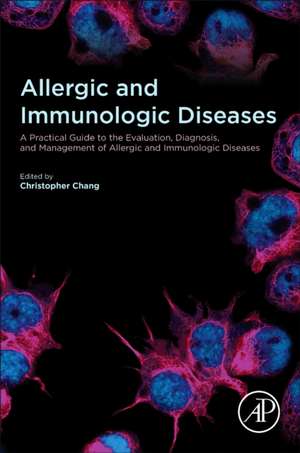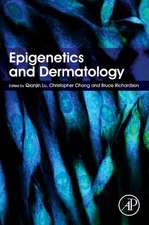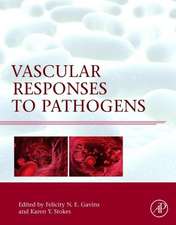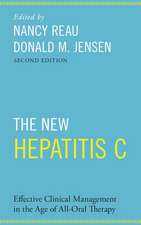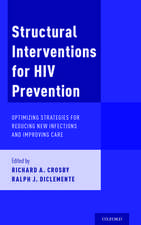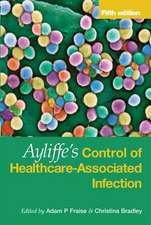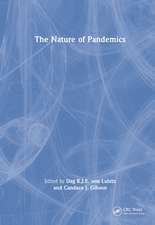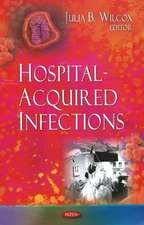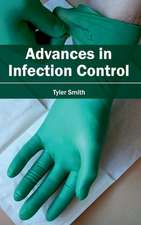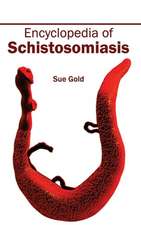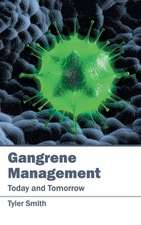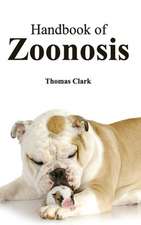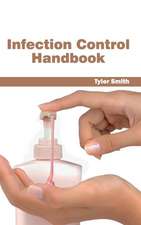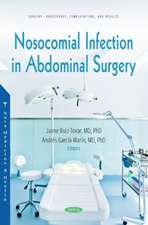Allergic and Immunologic Diseases: A Practical Guide to the Evaluation, Diagnosis and Management of Allergic and Immunologic Diseases
Editat de Christopher Changen Limba Engleză Paperback – 10 noi 2022
Allergic and Immunologic Diseases: A Practical Guide to the Evaluation, Diagnosis and Management of Allergic and Immunologic Diseases is a valuable resource for researchers and others involved in the day-to-day practice of allergy and immunology, with specific information, protocols and algorithms to guide their thinking. The book provides practical information and an explanation of why and how we do things, while also addressing the limitations of testing and treatment. Other sections focus on scientific based practices and the known pathophysiology of allergic and immunologic diseases, along with mechanisms of action in various treatment modalities.
This book is unique in that it explains the rationale behind everything we do in allergy and immunology, hence it offers readers specific information on procedures and how to order tests and treat allergic and immunologic diseases.
- Contains useful information on allergic and immunologic diseases, from why we do things the way we do, to methodologies, interpretation of the results and management of diseases
- Provides information that can be immediately downloadable for any specific procedure or treatment algorithm for immediate use
- Evaluates scientific merit and evidence or lack thereof
Preț: 1397.22 lei
Preț vechi: 1751.56 lei
-20% Nou
Puncte Express: 2096
Preț estimativ în valută:
267.44€ • 290.60$ • 224.80£
267.44€ • 290.60$ • 224.80£
Carte tipărită la comandă
Livrare economică 14-28 aprilie
Preluare comenzi: 021 569.72.76
Specificații
ISBN-13: 9780323950619
ISBN-10: 0323950612
Pagini: 1028
Ilustrații: Approx. 150 illustrations (150 in full color)
Dimensiuni: 152 x 229 x 89 mm
Greutate: 1.08 kg
Editura: ELSEVIER SCIENCE
ISBN-10: 0323950612
Pagini: 1028
Ilustrații: Approx. 150 illustrations (150 in full color)
Dimensiuni: 152 x 229 x 89 mm
Greutate: 1.08 kg
Editura: ELSEVIER SCIENCE
Cuprins
Section A: Background
1. A history of allergy and immunology
2. The development of clinical laboratory methods in the diagnosis of human disease
3. Discoveries with significant impact in how we diagnosis and treat diseases
4. Taking an allergy and immunology history and physical
5. Basic genetics and epigenetics for the immunologist and allergist
6. Immunological studies – utility and limitations
7. Future developments and how they will impact the practice of medicine
Section B: Diagnosis of allergic diseases
8. Epicutaneous and intradermal skin testing
9. The interpretation of epicutaneous and intradermal skin testing for foods
10. The use of in vitro methods to evaluate allergy
11. Food challenges
12. Testing for the physical urticarias
13. Techniques to evaluate asthma
14. Drug allergy testing
15. Sinus diseases and rhinolaryngoscopy
16. Approach to the rash from an allergy/immunology perspective
17. Patch testing and the evaluation of contact allergy
18. Skin biopsies and their utility
19. The evaluation of mast cell related disorders
20. The evaluation of a patient with urticaria and angioedema
21. Evaluating the patient with eosinophilia or eosinophilic disease
22. Unproven and controversial testing methods in allergy and immunology
Section C: Evaluation of immune function
23. Testing for primary immunodeficiency
24. Testing the innate immune system
25. Testing the adaptive immune system
26. Periodic fever syndromes and autoinflammatory diseases
27. Immunological dysfunction disorders
28. The AIDS workup
29. Basic workup for autoimmune diseases
30. Neuroimmunology
31. Genetic testing
Section D: Treatment of allergic and immunologic diseases
32. Immunotherapy to environmental allergens
33. Drug allergy desensitization methods
34. Oral, sublingual and dermatologic immunotherapy to food allergens
35. Conventional medications for the treatment of allergic diseases
36. The new biologicals in allergy
37. Action plans and quality of life evaluations
38. The treatment of atopic dermatitis
39. The recognition and treatment of anaphylaxis
40. Treatment of venom and other insect allergies
41. Drugs and treatment modalities for itch and hives
42. Integrative medicine in allergy and immunology
Section E: Treatment of immunological disorders
43. Treatment of the patient with PIDD
44. Management of autoinflammatory syndromes and periodic fevers
45. Immunomodulatory pharmaceuticals for the treatment of immune dysfunction
46. Bone marrow transplant for the patient with monogenic PIDD
47. The immunological management of the solid-organ transplant patient
48. Apheresis
49. Pharmaceuticals for AIDS
50. Gene therapy
1. A history of allergy and immunology
2. The development of clinical laboratory methods in the diagnosis of human disease
3. Discoveries with significant impact in how we diagnosis and treat diseases
4. Taking an allergy and immunology history and physical
5. Basic genetics and epigenetics for the immunologist and allergist
6. Immunological studies – utility and limitations
7. Future developments and how they will impact the practice of medicine
Section B: Diagnosis of allergic diseases
8. Epicutaneous and intradermal skin testing
9. The interpretation of epicutaneous and intradermal skin testing for foods
10. The use of in vitro methods to evaluate allergy
11. Food challenges
12. Testing for the physical urticarias
13. Techniques to evaluate asthma
14. Drug allergy testing
15. Sinus diseases and rhinolaryngoscopy
16. Approach to the rash from an allergy/immunology perspective
17. Patch testing and the evaluation of contact allergy
18. Skin biopsies and their utility
19. The evaluation of mast cell related disorders
20. The evaluation of a patient with urticaria and angioedema
21. Evaluating the patient with eosinophilia or eosinophilic disease
22. Unproven and controversial testing methods in allergy and immunology
Section C: Evaluation of immune function
23. Testing for primary immunodeficiency
24. Testing the innate immune system
25. Testing the adaptive immune system
26. Periodic fever syndromes and autoinflammatory diseases
27. Immunological dysfunction disorders
28. The AIDS workup
29. Basic workup for autoimmune diseases
30. Neuroimmunology
31. Genetic testing
Section D: Treatment of allergic and immunologic diseases
32. Immunotherapy to environmental allergens
33. Drug allergy desensitization methods
34. Oral, sublingual and dermatologic immunotherapy to food allergens
35. Conventional medications for the treatment of allergic diseases
36. The new biologicals in allergy
37. Action plans and quality of life evaluations
38. The treatment of atopic dermatitis
39. The recognition and treatment of anaphylaxis
40. Treatment of venom and other insect allergies
41. Drugs and treatment modalities for itch and hives
42. Integrative medicine in allergy and immunology
Section E: Treatment of immunological disorders
43. Treatment of the patient with PIDD
44. Management of autoinflammatory syndromes and periodic fevers
45. Immunomodulatory pharmaceuticals for the treatment of immune dysfunction
46. Bone marrow transplant for the patient with monogenic PIDD
47. The immunological management of the solid-organ transplant patient
48. Apheresis
49. Pharmaceuticals for AIDS
50. Gene therapy
Recenzii
"...a comprehensive resource on allergic and immunologic diseases that includes all need-to-know information from basics to clinical practice,… an in-depth reference guide on the fundamental aspects of basic and clinical allergic and immunologic diseases…. [A] few features of this book [are] fascinating. First, the table of contents has detailed subheadings; second, each chapter has a section entitled "how to use this chapter"; and finally, the "clinical pearls" section highlights the important teaching points of each chapter. This book is a valuable resource on allergic and immunologic diseases. It shares the expertise of over 100 contributors in a two-volume collection. Those who care for allergic patients will find this book practical and beneficial on a day-to-day basis." --©Doody’s Review Service, 2023, Massoud Mahmoudi, DO, PhD (University of California San Francisco)
